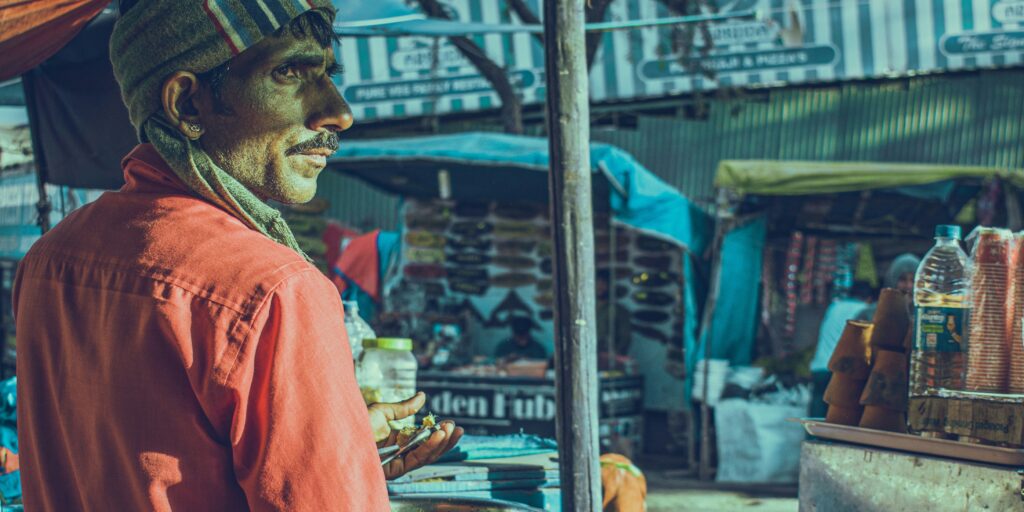
Photo courtesy Prchi Palwe via Unsplash
Po Cha Be Like
Tibetan butter tea is heaven, luxury in a cup, silky like cream-colored satin. Like swallowing a perfect pearl. Flavor like sour and salty and sharp. Milk from humble yaks in the high steep ranges of the Himalayas. The national beverage, common as monks in maroon robes. I procured my homely brew from a Tibetan tea man. A mixture of hot smoky tea with lashings of butter, creamy milk, and salt. Luxury seated at a window overlooking the Himalayas, luxury curled onto a deep, red cushion, clasping a cheap metal cup, every sip going down like satin.

Photo courtesy Anirudh via Unsplash
Equal Opportunity
India’s
highways a lawless laissez-faire place. There were no
speed limits, no lanes. I could have reached over and touched
the neighboring motorcycle
or cow. Perhaps lawless is
inaccurate. Perhaps India’s highways are Equal Opportunity
To All. In the US, one would never imagine
doing business on the highway, yet
maneuvering between oncoming traffic
in Kolkata, dirty young boys and girls walked head-on, holding
wilted flowers for sale. Devotees
performed agonizing religious acts
along the highway: men and women held
their hands in namaste at their hearts, devotedly lay
down on the sizzling asphalt in a full-body
prostration, touching forehead to ground. Then
stand up, take one step forward,
repeat. They must have already traveled some distance—
their knees, elbows, and forehead dripped
blood. Edged on one side of the expressway, a mountainous
heap of rubbish loomed as tall as the Taj Mahal. Ancient and dark, a
skinny Indian man squatted at the heap—
his dhoti scrunched up to his thighs—and picked
at the putrid rubbish, eating rancid scraps. Next to him, a monkey
resembled his twin: squatted down, picking and eating filthy refuse.
Leave a Reply